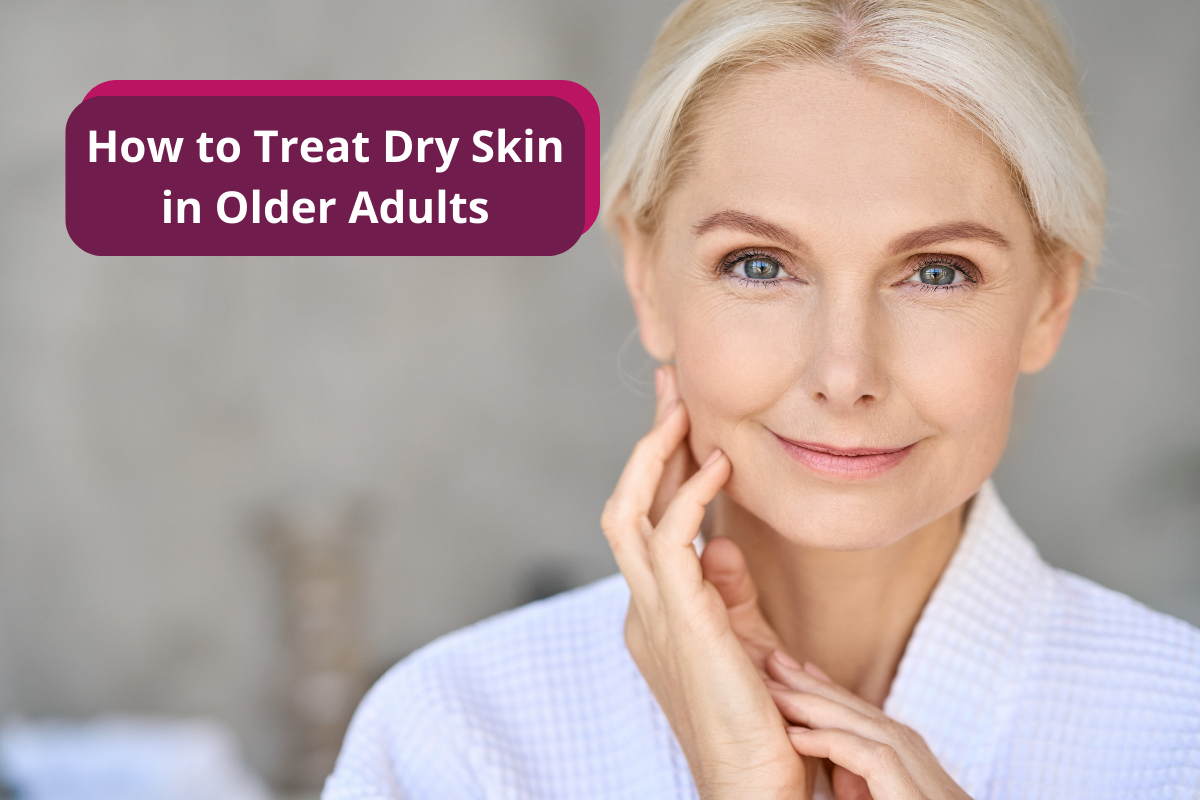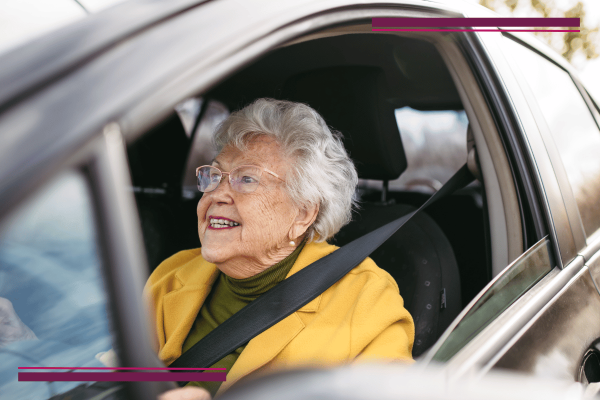Last updated on January 29th, 2024
As you age, the epidermis and dermis of your skin weaken, loosening skin elasticity and reducing connectivity. Therefore, your skin has less access to natural sources of collagen, elastin, and moisture.
With decreased amounts of collagen, elastin, and moisture, your skin dries more easily, so you need to look for alternative solutions for aging skin.
8 Common Causes of Dry Skin in Seniors
- Reduced Production of Natural Oils
- Sun Damage
- Smoking
- Not Drinking Enough Liquids (Avoid Drinking Alcohol and Caffeinated Beverages)
- Being in Dry Air
- Stress
- General Deterioration of Oil and Sweat Glands Due to Age
- Underlying or Previously Existing Health Issues (Dermatitis, Diabetes, Ichthyosis, Kidney Disease, Perioral Dermatitis, Psoriasis, Seborrheic Dermatitis)
While most people can leave dry skin untreated, it generally isn’t wise or recommended by medical professionals.
Those with untreated, dry skin can develop atopic dermatitis (eczema) or infections.
Learn more about the importance of elderly skincare here.
Unlike dry skin, which can be treated without a specialist, skin conditions caused by dry skin, like eczema, can only be treated by a dermatologist.
The best way to circumvent expensive medical bills and serious risks to your health is to treat dry skin before it becomes a problem.
10 Ways to Treat Dry Skin for Seniors
The most common cause of dry skin in seniors is the natural reduction of oil production. Ideally, skincare routines should be started at a young age because many of the causes of dry skin in seniors are due to youthful recklessness.
However, there is no need to worry if you are dealing with dry skin while you age because it can be dealt with by applying these ten easy steps.
Drink Enough Water
Staying properly hydrated is essential for seniors to maintain healthy, moisturized skin. As we age, our skin loses some of its natural oils and ability to retain moisture. This often leads to dry, itchy, flaky skin.
Drinking adequate water every day helps counteract this drying effect by keeping skin cells plump and supple.
Seniors should aim for at least 8 glasses of water daily to support skin health. Consuming foods with high water content, like fruits and vegetables, can also boost hydration.
Increase Ingestion of Vitamin A
Vitamin A slows down collagen breakdown, preventing wrinkles from forming and changing pigmentation. Apply Vitamin A cream or boost consumption of foods high in Vitamin A to delay and help prevent skin deterioration. Leafy greens, tomatoes, oranges, fish oil, milk, eggs, cantaloupe, and mango are high in Vitamin A.
Eat Foods with Antioxidants
Antioxidants strengthen your skin by managing healthy skin cell growth. Antioxidants are found in many natural foods and medical products. Consume and look for goods with green tea, spinach, olives, sweet potatoes, citrus, peppers, and grapes.
Boost Your Body’s Omega-3 and Omega-6 Count
Omega-3 and Omega-6 fatty acids help your skin produce oil, hydrate your skin, prevent acne, and slow down signs of aging. Go to your local grocery store or online and purchase a multivitamin that contains Omega-3 and Omega-6. Multivitamins are an excellent option for seniors because it contains other supplements, like Vitamin A and E.
Limit Alcohol and Quit Smoking
Overindulging in alcohol and tobacco can cause dehydration and rob the skin of moisture. Alcohol acts as a diuretic, causing the body to lose more fluid than it takes in. This leads to drier skin that is more prone to itching, flaking, and cracking.
Smoking also dehydrates the body and damages collagen and elastin in the skin, leading to a lackluster complexion.
For older adults already dealing with age-related dryness, drinking in moderation and quitting smoking can help reverse skin dryness and restore a healthy, glowing appearance.
Buy Moisturizing Cream
The most common option for dealing with dry skin is using a moisturizing cream. There are many different options made up of various chemicals, some of which can cause irritation.
Look for ointment, lotion, or cream with glycerin, aloe, mineral oil, and petroleum jelly. Moisturizing cream works best right after you get out of the shower.
Purchase a Humidifier
If you live in a dry climate, are trying to beat the cold weather with the heat on high, or use the A/C frequently, dry air is likely drying out your skin.
Humidifiers add moisture into the air, restoring cracked skin (which allows moisture to escape much more easily than smooth skin).
Change Up Your Bathing Routine
It may seem ironic, but your skin can become excessively dry if you take too many baths and especially hot showers.
Some dermatologists recommend cutting down on baths and showers to every other day during the winter months. Reducing the water temperature or limiting the amount of time you are in the tub can also help avoid dry skin in seniors.
Protect Yourself from the Sun
The Sun is the number one enemy of a person’s skin and the leading cause of skin disease. Older adults need to avoid going outside during especially sunny days.
If you have to go outside, use sunscreen with an SPF of 30 or higher, and wear a wide-brimmed hat, baseball cap, or bucket hat to provide shade and protection for your face, neck, and ears. Light, flowing, long-sleeved clothes can also help protect your skin from the sun's damaging rays.
Manage Stress
Stress can be a major trigger for flare-ups of eczema, psoriasis, and other inflammatory skin conditions that cause dry, itchy skin in seniors. Finding ways to manage stress and anxiety can go a long way in keeping these skin conditions under control.
Read also: Stress Management Tips for Older Adults
The Benefits of Maintaining Healthy Skin
Maintaining healthy skin does not only have cosmetic benefits, but it also has a variety of health benefits. From preventing skin disease or permanent damage to improving mental health and confidence, healthy skin can change your life in many ways.
Dry skin is unpreventable, but it can be treated and managed using the above methods. Getting assistance with choosing or applying skin care remedies can be challenging to do alone, especially for aging adults.
Seniors with existing health conditions that may contribute to dry skin, such as diabetes, should consult their physician to discuss treatment options and recommendations tailored to their needs.
With proper skin care and guidance from medical professionals when necessary, aging adults can keep their skin hydrated, supple, and healthy.
If you are looking for home care services in Lafayette, LA, and the surrounding areas to assist you with personal care, transportation, companionship, and more, contact us at Home Instead today.
Sources:



